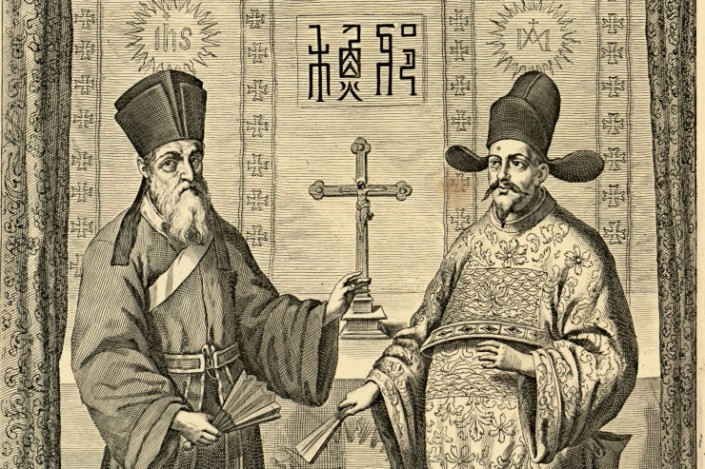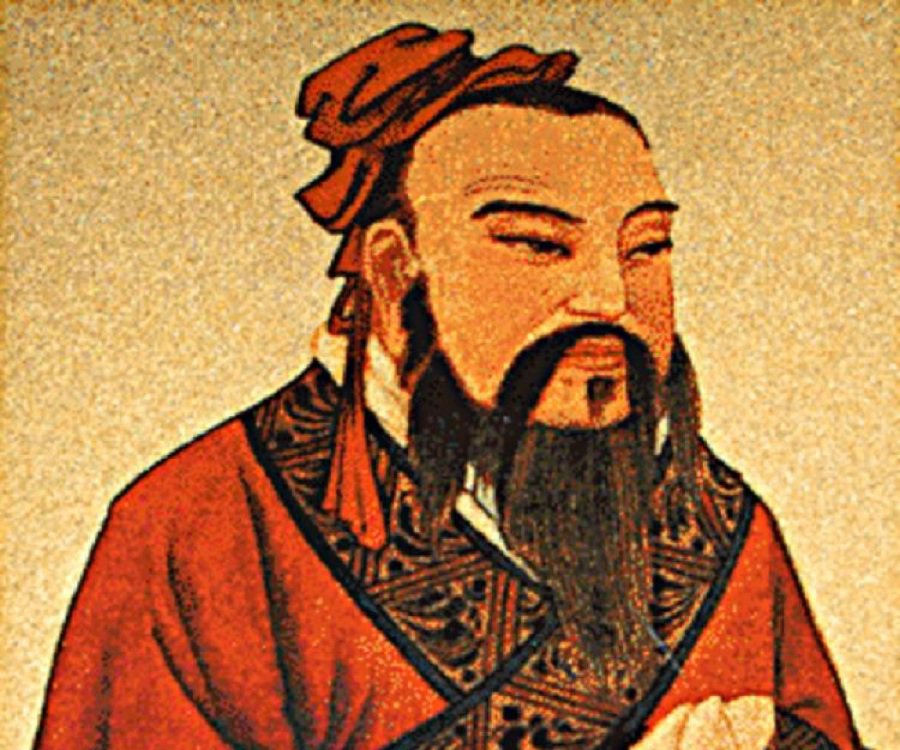Diplomacy
Engagement with China and the Enlightenment- 与中国的接触与启示

Image: Pope Encourages Conference on 17th Century Jesuit, ‘Friend of the Dear Chinese People’.
‘The Enlightenment’ broadly refers to the intellectual and scientific progress in eighteenth century Europe that was inspired by the Scientific Revolution during the sixteenth and seventeenth centuries. During this period, many intellectuals started to develop a worldview that was critical of religious authority. Belief in miracles and faith were no longer accepted as adequate ways of explaining how the world functioned and came to be. This undermined not only the geocentric understanding of the cosmos as Galileo proved that the earth was not the centre of the universe, but also marked a shift in the way mainstream academia thought about human evolution, from the goal-directed explanation of Lamarck to Darwin’s natural selection theory.
In his essay, ‘An Answer to the Question: What is Enlightenment?’ (1784), Immanuel Kant wrote that this social and spiritual development of society (Aufklärung) symbolised the rational coming of humankind and a release from self-enforced immaturity. Immaturity here refers to the inability to use independent thought without the guidance of another. There were many factors that contributed to the culture of rationality and individualism in Europe, including the Thirty Years War (1618-1648) during which people started to question religion and warfare, as well as The Age of Exploration, in which discoveries in the New World exposed Europe to other philosophies and cultures. However, one of the less discussed influences on Europe’s intellectual history is contact with 17th century China. As Franklin Perkins (2004) notes, by disregarding this aspect of the development of secularism in Europe,
We strengthen the illusion that European thought is a causa sui, growing up of itself, without interaction with the rest of the world. This illusion of an independent Europe allows for easy distinctions between “us” and “them”, “East” and “West,” at the same time that it obscures the historicity of those distinctions (p. x).
By the end of the sixteenth century, interaction between Europe and China was already underway as Jesuit missionaries engaged in cultural and scientific exchange: one of the earlier examples of public diplomacy. For Roman Catholic missionary, Francis Xavier (1506–1552), the journey to China was considered “the dream of Jerusalem” after many were unable to make the long sea journey around the Indian ocean. As a distant place that explorers considered as ‘waiting’ to be discovered, China became the ‘Jerusalem of Asia’, a place that would provide a new map of spiritual progress that would unite the world.
One of the main developments from these visits though was not so much the expansion of biblical thought, but the development of the pre-Adamism movement. In short, this was the belief that humans existed before Adam. By studying Chinese chronology, which showed that China was ruled by emperor Fu Xi (around 2950 BCE) long before the biblical flood (2349 BCE), many writers asserted alternative theories to the biblical version of world history. Dutch scholar Isaac Vossius, for instance, claimed that Chinese chronology, covering more than 4,000 years, was an accurate source for showing that the dates of the Hebrew Bible could have been wrong. Biblical events like the flood were increasingly considered local events that only happened to the Jews and no longer as universally valid or applicable.
Writers like Voltaire expressed similar thoughts. In his encyclopaedic entry on ‘history’, Voltaire pointed to Chinese historiography as a primeval and reliable source that recorded events that he thought probably did take place. Without mention of gods or miracles, China stood as a model for secular universal history, and even managed to feature notable characters like Confucius, who Voltaire described as a sage transmitting “the purest ideas that human nature unassisted by revelation can form of the supreme being” (1759, p. 23). The discovery of Chinese chronology ultimately provoked many authors to question the credibility of Biblical authority, starting a conversation on the role of the supernatural in historical inquiry, and whether there should be a division between ‘sacred’ and ‘secular’ history.
It should be noted that in many cases the Jesuit and missionary writings that attempted to describe China in theory and practice either over-exaggerated praise for China or interpreted Chinese history and ethics from a Christian point of view. Vossius’s writings are a prime example. Demonstrating his strong interest and admination of China, he regarded China as a real life Platonic republic ruled by philosopher kings such as Confucius. For Vossius, not only was it a place free from war, the Chinese were one of the most advanced and productive people, writing in one the oldest languages and accomplishing in areas like medicine, architecture, and music long before any other nation advanced in these fields (see Vossius, 1685, p. 57-58).
Study of Confucianism led many to believe that Chinese philosophy also represented a universal morality. While failing to mention God as the supreme origin of moral law, Confucianism was still considered a superior way of being that could align with many Christian beliefs. Jesuit Alvarez Semedo (1585-1658) considered Confucian virtues such as ren to be equal to the Christian virtues of piety (piedad) and humanity (humanidad). Unlike the pagans, Semedo (1642) argued that Confucianists still worshiped some supreme force (Tao – the Way; also Tian – Heaven as the moral universe) without comparing it with other beings. Translations of major works such as the Doctrine of the Mean (Zhongyong) and the Analects (Lunyu) were interpreted in ways where the authors highlighted similarities between Christianity and Confucianism. The common phrase ‘who offends against Heaven’ in Chinese texts was changed to ‘who sins against Heaven’, as ‘sin’ was more appropriate to Christian understandings of transgression and lawlessness.
It could be said that this encounter with Chinese philosophy and history by the early Jesuits and later writers who would publish books about their experiences in China partly contributed to ideas of progress, rationalism, and history in the West. Very much like the Confucian revivalist movement today, Confucian morality was considered to be the equivalent to Christianity in its emphasis on virtues, order, and harmony. Although these understandings of China would have been a consideration in the development of Enlightenment theories, the exchange had little to do with dialogue. The one-sided explanations of China show how authors are in positions of power to communicate ideas, many of which are based on interests that align with the dominant ideology and political climate. For centuries, writings about China from these encounters would have shaped popular imaginations about the Far East as both ‘exciting’, ‘advanced’, ‘entertaining’, but also as ‘frightening’ and ‘uncivilised’. The paradoxical views of the Chinese and China’s rise continue to impact perceptions of what China is and how it is influencing the world, and so it is important to be aware that these views and depictions never exist in isolation. Theories about the world not only develop within a society, but from contact with the outside world and the perspectives of individuals who write about these engagements.
